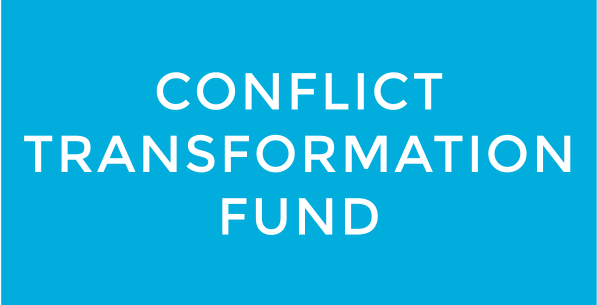Learn
Here is a small sampling of what we are reading, listening to and learning from. Please let us know if you have recommendations for additional resources or want to share feedback. Enjoy!
Videos & Podcasts
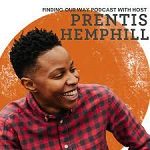 Finding Our Way Podcast
Finding Our Way Podcast
– Prentis Hemphill
Join Prentis, activists, artists and leaders as they discuss how to realize the world we want through our own healing and transformation. Complexities of conflict are woven throughout each episode and Season 2, Episode 7 is specifically titled “Navigating Conflict with Kazu Haga.”
 Towards Authentic Dialogues: Working through missteps and attending to accountability
Towards Authentic Dialogues: Working through missteps and attending to accountability
– Roxy Manning
This 9-minute video is an excerpt from Roxy’s course Authentic Dialogues Across Race and Ethnicity and provides specific tips to try and request when missteps happened.
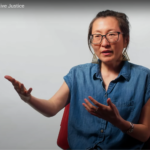 Everyday Practices of Transformative Justice
Everyday Practices of Transformative Justice
(15-minute video)
“Forget violence, harm and abuse, we’re not even good at handling conflict or misunderstandings…Really great work falls apart, not always because of outside forces, but often times because of the internal dynamics because people don’t know how to handle basic conflict.” – Mia Mingus.
In this video series, Mia and other transformative justice practitioners share about their decades of work and discuss specific ways we can proactively transform our culture and relationships.
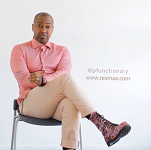 Free 5 Day Racialized Trauma E-Course –Resmaa Menakem and Cultural Somatics Training & Institute This free e-course compliments Resmaa Menakem’s book My Grandmother’s Hands which is the first self-help book to examine white-body supremacy in America from the perspective of trauma and body-centered psychology. Manekem introduces an alternative view of what we can do to grow beyond our entrenched racialized divide and takes readers through a step-by-step healing process based on the latest neuroscience and somatic healing methods. There is also a more complete training for cost at the same link.
Free 5 Day Racialized Trauma E-Course –Resmaa Menakem and Cultural Somatics Training & Institute This free e-course compliments Resmaa Menakem’s book My Grandmother’s Hands which is the first self-help book to examine white-body supremacy in America from the perspective of trauma and body-centered psychology. Manekem introduces an alternative view of what we can do to grow beyond our entrenched racialized divide and takes readers through a step-by-step healing process based on the latest neuroscience and somatic healing methods. There is also a more complete training for cost at the same link.
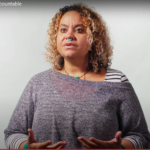 How To Support Harm Doers In Accountability?
How To Support Harm Doers In Accountability?
(16-minute video)
Join adrienne maree brown and other transformative justice practitioners sharing about this core question. adrienne also shares helpful perspective on how she distinguishes who she stays in professional and personal relationships with.
 Cornel West’s Keynote on Restorative Justice On The Rise Podcast
Cornel West’s Keynote on Restorative Justice On The Rise Podcast
In 2015 at the National Conference on Community and Restorative Justice, Fania Davis introduced Cornel West where he delivered an extraordinary, poetic, rhythmic keynote address on restorative justice.
Books & Facilitation Guides
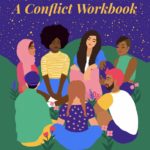 Turning Towards Each Other: A Conflict Workbook
Turning Towards Each Other: A Conflict Workbook
– Weyam Ghadbian & Jovida Ross with Movement Strategy Center
This workbook offers exercises for personal and collective reflection grounded in awareness that when we avoid conflict or move through it carelessly, we end up acting out and reinforcing micro versions of oppressive structural patterns unconsciously, even if we are from an identity harmed by those systems. This can end relationships, sidetrack organizations, and undermine social movements.
 Healer Guiding Questions
Healer Guiding Questions
– Harriet’s Apothecary
This intergenerational, healing collective lifts up how Harriet Tubman teaches us that we can use healing to support individuals AND we can acknowledge and shift the conditions of power and oppression that violently impacts our people. Her legacy invites us to constantly ask ourselves and this resource provides of list of powerful questions for individual and collective reflection.
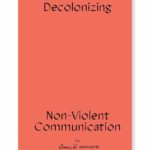 Decolonizing Non-Violent Communication
Decolonizing Non-Violent Communication
– meenadchi
This is a workbook stocked with activities, exercises, and ideas to explore our relationship to communication, our bodies, and each other. Using a trauma-informed approach, this workbook encourages readers to deepen our emotional vocabularies so that we can work towards a more enlivened, healthy interdependence.
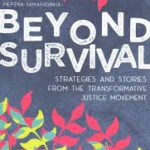 Beyond Survival
Beyond Survival
– Edited by Ejeris Dixon and Leah Lakshmi Piepzna-Samarasinha
Multi-formed book — with chapters ranging from toolkits to essays — delving into the “how to” of transformative justice, providing alternatives to calling the police, ways to support people having mental health crises, and much more.
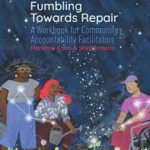 Fumbling Towards Repair – A Workbook for Community Accountability Facilitators
Fumbling Towards Repair – A Workbook for Community Accountability Facilitators
– Mariame Kaba and
Shira Hassan
This workbook is intended to support people who have taken on the coordination and facilitation of formal community accountability processes to address interpersonal harm & violence.
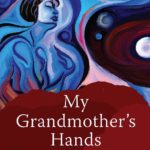 My Grandmother’s Hands: Racialized Trauma and the Pathway to Mending Our Hearts and Bodies
My Grandmother’s Hands: Racialized Trauma and the Pathway to Mending Our Hearts and Bodies
– Resmaa Menakem
This book is a call to action for all of us to recognize that racism is not about the head, but about the body, and introduces an alternative view of what we can do to grow beyond our entrenched racialized divide.
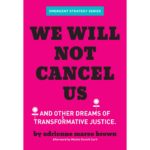 We Will Not Cancel Us
We Will Not Cancel Us
– adrienne maree brown
Cancel or call-out culture is a fraught topic these days. Originating as a way for marginalized and disempowered people to address harm and take down powerful abusers, often with the help of social media, it is seen by some as having gone too far. But what is “too far” when you’re talking about imbalances of power and patterns of harm? And what happens when people in social movements direct our righteous anger inward at one another?
 Love and Rage: The Path of Liberation through Anger
Love and Rage: The Path of Liberation through Anger
– Lama Rod Owens
In a time when the politics of anger—who gets to be angry, how, when and at whom—infuse every institutional and cultural sphere, Lama Rod Owens offers a radical re-envisioning of a deeply timely topic in this book. Love and Rage will resonate with anyone who wants to metabolize or harness their anger for transformation and change.
Shorter Reads & Activities To Explore
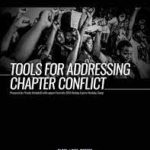 Tools for Addressing Chapter Conflict – Prentis Hemphill with help from the Black Lives Matter Healing Justice Working group
Tools for Addressing Chapter Conflict – Prentis Hemphill with help from the Black Lives Matter Healing Justice Working group
When we understand the nature of conflict we can also understand that conflict between us, in our chapters, and within our network is an expected and common issue. This tool provides context and questions about trauma, triggers, direct communication, restorative justice/transformative justice, and facilitating a process to attend to conflict. 5 pages
 The CLARA Method for
The CLARA Method for
De-escalation When Responding to Questions and Verbal Attacks
– Various Contributors
This tool for self-regulation and de-escalation has been developed over time and commonly practiced by conflict workers in situations of mild disagreement to those of extreme violence. The memorable acronym provides a reminder to prioritize being calm and centered before engaging. 2 pages
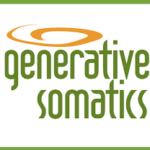 The Transformative Power of Practice
The Transformative Power of Practice
– Ng’ethe Maina and Staci Haines of generative somatics
Explore the liberation possible when default practices that can result in us acting and reacting in ways that make us more difficult for others to trust, less effective in our work, or more limited in our approaches to systemic change and movement building are transformed into intentional practices. 4 pages
 Steps to End Prisons and Policing: A Mixtape on Transformative Justice
Steps to End Prisons and Policing: A Mixtape on Transformative Justice
– Just Practice
This mixtape is an offering of nourishment and care to the abolitionist community. Learn from some of the people who have been practicing and thinking about and creating organizations around Transformative justice over the last two decades.
